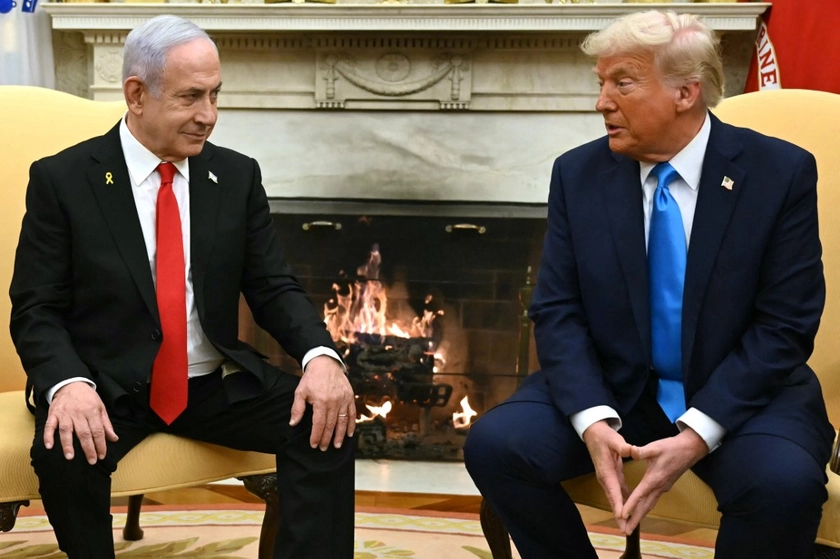After his election as US president, Donald Trump's first picks for key foreign policy positions have become known. Military veteran and Fox News presenter Pete Hegseth is to head the US Department of Defence, while Marco Rubio is under discussion as the next Secretary of State and Mike Waltz as the new National Security Adviser. Both are considered hardliners vis-à-vis China and have criticised the current policy on Ukraine. Europe's press weighs in.
Washington opting for aggressive approach
JOIN US ON TELEGRAM
Follow our coverage of the war on the @Kyivpost_official.
For 444.hu (Hungary), the makeup of the team points in a very specific direction:
“Donald Trump's personnel decisions, which were leaked on Tuesday morning, are a relatively clear indication of Washington's priorities for the coming years: making everything subordinate to an aggressive approach towards China, concluding a quick ceasefire in Ukraine and providing absolute support for Israel. This may be good news for Jerusalem and also for Moscow, but it also shows that the goal is not US isolationism in the traditional sense, but at most a selective isolationism. Overall, the aim could be a policy of force with an expected further increase in US military spending.”
Moves that must not be underestimated
The Süddeutsche Zeitung (Germany) sees a pattern in Trump's first personnel decisions:
“This is not a purely isolationist group at work, but a team of interventionist hawks. Marco Rubio is considered the inventor of the policy of encircling China. Michael Waltz, who is expected to become the next national security adviser, will forbid any signals of weakness from the US, also vis-à-vis Russia. Nevertheless, it is too early for Europe to draw any reliable conclusions from these personnel decisions - except that Trump may once again have been underestimated.”
Ukraine’s Out of ATACMS – AP
Post-war alliances facing collapse
El País (Spain) voices fears:
“Trump's second presidency has the potential to trigger a veritable geopolitical revolution. Nothing is certain, but the indications are that it will have a profound impact on international relations. ... There are four conflicts in which this impact could be far-reaching and lasting. Two are full-blown wars (Ukraine and the Middle East), while the other two are potential conflicts (Taiwan and Korea). ... It is to be feared that Trump will not surround himself with representatives of the Republican establishment who previously curbed his instincts. ... This time a profound breakdown of the web of alliances built by the US after 1945 and a permanent change of the geopolitical landscape seem more likely.”
Jokes about the fate of Ukraine
La Stampa (Italy) warns:
“Almost all candidates for important positions in US diplomacy and security policy either voted in favour of blocking military aid to Kyiv in Congress earlier this year or had spoken out against supporting Ukraine. The rumours about what Trump intends to do stem from tweets by Elon Musk, videos posted by Trump's son, TV interviews with advisers (which were immediately refuted) and media revelations about phone calls with the Kremlin (which were immediately denied). ... The fate of Ukraine and Europe is being speculated about in jokes in front of the cameras and on social media.”
A real problem for Europe
Lidové noviny (Czech Republic) suspects that things will develop as follows:
“We can assume that the Trump administration will push for a peaceful solution along the lines of territorial concessions to Russia. The option of freezing the front line seems very likely here. ... Europe would lose fundamentally with this solution. The ceasefire would start the countdown giving Russia the time it needs to regroup so that it can attack one of the Nato countries directly. Poland and the Baltic states are obvious options here, but aggression elsewhere, for example in the polar regions or via Moldova in Romania, can't be ruled out either.”
Will Putin be lured into the oil price trap?
In a Facebook post, political scientist Abbas Gallyamov (Russia) predicts that Trump will cosy up to Russia but ruin it economically:
“If the Americans increase their oil production, is that 'Russophobia'? ... But even if Putin gets furious, what can he do about it? ... A trap is looming: the end of the 'special military operation', coupled with low oil prices, would entail major domestic risks for the Russian Kremlin. Once the fireworks of victory have fizzled out and the vodka has been drunk, it will become clear that there is not much to bite on - low hydrocarbon prices don't leave much leeway.”
You can also highlight the text and press Ctrl + Enter











